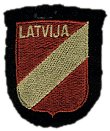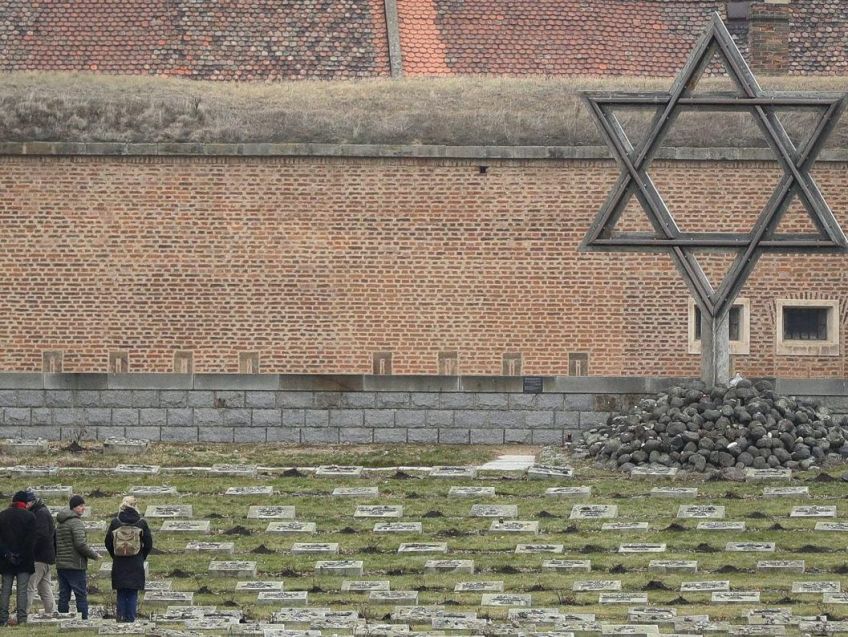Michael Mostyn Chief Executive Officer of B’nai Brith Canada — March 15, 2019 "We must challenge those who distort historical records on governments, military units or organizations that fought with, supported or sympathized with the Nazis during World War II. This includes government leaders who acquiesce in, or fail to condemn, a process of Nazi glorification that amounts to Holocaust distortion. This cannot be tolerated."
Lowenberg provides a link to Mostyn's opinion piece at the Toronto Sun retrieved and reproduced here for commentary.
MOSTYN: As Holocaust memories fade, Nazi glorification must be resisted Michael Mostyn, March 15, 2019
The Holocaust and the tragic events that befell the Jewish community in the Second World War are fast fading from Canadians’ memories.
A recent survey by The Azrieli Foundation showed an alarming 52% of Canadian millennials cannot name even one concentration camp and 62% did not know six million Jews were killed in the Holocaust.
It is essential that Canadians help preserve Holocaust memory and speak out against those who engage in denial, distortion or obfuscation. This is a perilous time, particularly for Jewish communities in Europe.
The rise of extremist forces on the right is a critical challenge. Witness the recent targeting of mosques in New Zealand.
Last year, B’nai Brith Canada asked Prime Minister Justin Trudeau to speak openly while visiting Latvia, a NATO ally, to condemn all attempts to glorify Nazi sympathizers or collaborators, whether governments, military units, fascist organizations or individuals. We are still waiting for a response.
Parades and demonstrations in European cities today glorify the role of military units known to have supported or sympathized with the Nazis. This includes worrying signs in the three Baltic countries and in Ukraine. Too often, we hear that nothing must be done that impugns the national honour to counter the voices of those who object. Laws giving effect to this approach are pernicious and serve to unleash dark forces.
We must challenge those who distort historical records on governments, military units or organizations that fought with, supported or sympathized with the Nazis during World War II. This includes government leaders who acquiesce in, or fail to condemn, a process of Nazi glorification that amounts to Holocaust distortion. This cannot be tolerated.
Last summer, Ukraine renamed a major boulevard in honour of Stepan Bandera, leader of groups responsible for the slaughter of thousands of Jews and Poles during World War II. Lviv regional council declared 2019 “The Year of Bandera.”
In Lithuania, nationalist marches repeatedly use banners glorifying local Holocaust collaborators. A major university in Kaunas features a lecture hall and sculpture honouring the 1941 Nazi puppet Prime Minister Juozas Ambrazevicius-Brazaitis, who signed papers consigning Jews of his own city to a death camp.
1In Latvia, parades continue that, in effect, glorify the Latvian Legion, including the 15th and 19th Waffen Grenadier Divisions of the SS. In fact, one annual march is taking place today. Where’s the condemnation?
The Council of Europe Commission Against Racism and Intolerance (ECRI) recommended in 2012 that Latvian authorities condemn attempts to commemorate persons who fought in the Waffen SS and collaborated with the Nazis. ECRI further recommended that authorities ban any gathering or march legitimizing Nazism.
Those who glorify the record of such groups cannot dismiss criticism as fake news. Nor can their actions be justified as the lesser of two evils. The complexity-of-history argument must not divert attention from what actually happened to the Jews of Europe at the hands of those who supported or sympathized with Nazi motivation.
To raise these concerns is not to challenge trans-Atlantic unity or to endorse disinformation efforts or mischief-making by some countries, including Russia.
The fact is that some organizations and their leaders, glorified for fighting the Soviet army, were also involved in atrocities against Jewish civilians or embraced ideologies that were anti-Semitic. There can be legitimate debate about the scale of complicity, but complicity there was.
This is why B’nai Brith Canada rejects any efforts to constrain historians and media from researching what happened and publicly explaining it objectively. Those who write about historical facts should not be condemned. They should be challenged, yes, but supported for the light they shed on the implications for contemporary societies.
Michael Mostyn is Chief Executive Officer of B’nai Brith Canada.
Examination
We share Mostyn's alarm at the global rise of ultra-nationalism and increasingly violent xenophobic populism, not just an affliction of the masses, but attitudes craven European and American politicians have stoked to acquire and consolidate personal power.
Following the intuitive wisdom of the aphorism, "if it looks like a duck and it quacks like a duck then it is a duck," Mostyn condemns the Latvian Legion by the presence of "SS" in the the title of its divisions, and nothing else. This is solely a matter of viewpoint. A hunter would conclude "...then it's a damn good decoy."
And that is the nature of the phrase "of the SS" — a decoy which invites condemnation of the Legion as Holocaust collaborating members of Hitler's criminal German SS convicted at Nuremberg, where, incidentally, former Latvian Legionnaires guarded the most notorious Nazi elite prisoners.
Mostyn demands of us, where is the outrage?
Outrage against what? There is nothing inherently evil in "glorifying" military. We do it every Armistice Day, every national veterans' day, every ceremonial giving of thanks to those who sacrificed their lives to preserve their nation.
Mostyn leaves it to the reader to infer the Latvian Legion are war criminals without uttering a word about their having committed any crime. He cannot because they did not. Even Holocaust scholar and memory activist Efraim Zuroff — among the harshest critics of the annual commemoration — admitted in a 2012 interview in Latvia that the Legion committed no crimes and was not involved in the Holocaust.
“Latviešu SS leģions tiešām nepiedalījās zvērībās pret civiliedzīvotājiem. Tas ir fakts, ko es netaisos apšaubīt! Taču leģionā iestājās arī virkne kolaboracionistu, kas pirms tam bija piedalījušies ebreju iznīcināšanā."1
The Latvian SS Legion truly did not participate in atrocities against the civilian population. That is a fact, which I am not going to cast doubt upon! However, ranks of collaborators who had earlier participated in the extermination of Jews also joined the Legion.
There is no dispute that late in the war, the Nazis redeployed collaborators into the Legion — this was neither a willful nor welcome joining: Legionnaires considered these collaborators cowards who did everything they could to escape combat. It is the prior crimes of these collaborators which tar the honor of the entire Legion.
| 1 | See LA.LV website: link. |

